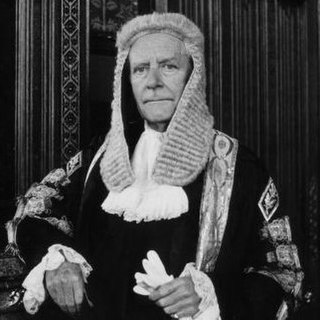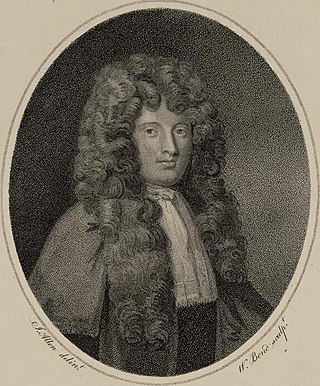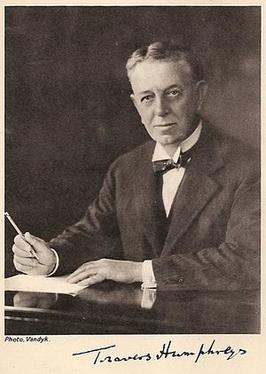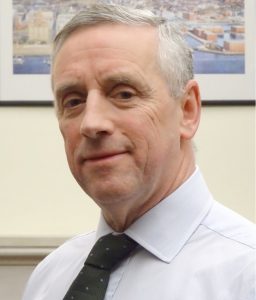Sally Clark was an English solicitor who, in November 1999, became the victim of a miscarriage of justice when she was found guilty of the murder of her two infant sons. Clark's first son died in December 1996 within a few weeks of his birth, and her second son died in similar circumstances in January 1998. A month later, Clark was arrested and tried for both deaths. The defence argued that the children had died of sudden infant death syndrome (SIDS). The prosecution case relied on flawed statistical evidence presented by paediatrician Roy Meadow, who testified that the chance of two children from an affluent family suffering SIDS was 1 in 73 million. He had arrived at this figure by squaring his estimate of a chance of 1 in 8500 of an individual SIDS death in similar circumstances. The Royal Statistical Society later issued a statement arguing that there was no statistical basis for Meadow's claim, and expressed concern at the "misuse of statistics in the courts".

Robert Michael Oldfield Havers, Baron Havers,, was a British barrister and Conservative politician. He was knighted in 1972 and appointed a life peer in 1987.

The Crown Prosecution Service (CPS) is the principal public agency for conducting criminal prosecutions in England and Wales. It is headed by the Director of Public Prosecutions.
Sir Samuel Roy Meadow is a British retired paediatrician infamous for facilitating several wrongful convictions of mothers for murdering their babies. He was awarded the Donald Paterson prize of the British Paediatric Association in 1968 for a study of the effects on parents of having a child in hospital. In 1977, he published an academic paper describing a phenomenon dubbed Munchausen Syndrome by Proxy (MSbP). In 1980 he was awarded a professorial chair in paediatrics at St James's University Hospital, Leeds, and in 1998, he was knighted for services to child health.
The Guildford Four and Maguire Seven were two groups of people, mostly Northern Irish, who were wrongly convicted in English courts in 1975 and 1976 for the Guildford pub bombings of 5 October 1974, and the Woolwich pub bombing of 7 November 1974. All the convictions were eventually quashed after long campaigns for justice, and the cases, along with those of the Birmingham Six, diminished public confidence in the integrity of the English criminal justice system.

The Crown Office and Procurator Fiscal Service is the independent public prosecution service for Scotland, and is a Ministerial Department of the Scottish Government. The department is headed by His Majesty's Lord Advocate, who under the Scottish legal system is responsible for prosecution, along with the sheriffdom procurators fiscal. In Scotland, virtually all prosecution of criminal offences is undertaken by the Crown. Private prosecutions are extremely rare.

Sir William Williams, 1st Baronet was a Welsh lawyer and politician. He served as a Member of Parliament for Chester and later Beaumaris, and was appointed Speaker for two English Parliaments during the reign of Charles II. He later served as Solicitor General during the reign of James II. Williams had a bitter personal and professional rivalry with Judge Jeffreys.

Henry Hawkins, 1st Baron Brampton,, known as Sir Henry Hawkins between 1876 and 1899, was an English judge. He served as a Judge of the High Court of Justice between 1876 and 1898. R. F. V. Heuston described him as "probably the worst judge on the English Bench in the nineteenth century."

Francis Mulholland, Lord Mulholland, is a Scottish judge who has been a Senator of the College of Justice since 2016. He previously served from 2011 to 2016 as Lord Advocate, one of the Great Officers of State of Scotland and the country's chief Law Officer, and as Solicitor General, the junior Law Officer.
Sir Nigel Hamilton Sweeney KC, styled The Hon. Mr Justice Sweeney, is a former High Court judge. He retired on 18 March 2023.

Steven Chong Horng Siong is a Singaporean judge who has been serving as a judge of the Court of Appeal of Singapore since 2017. He had previously served as the seventh attorney-general of Singapore between 2012 and 2014, and a judge of the High Court of Singapore between 2010 and 2012, and again between 2014 and 2017.
A private prosecution is a criminal proceeding initiated by an individual private citizen or private organisation instead of by a public prosecutor who represents the state. Private prosecutions are allowed in many jurisdictions under common law, but have become less frequent in modern times as most prosecutions are now handled by professional public prosecutors instead of private individuals who retain barristers.
Sir Colman Maurice Treacy is a retired Lord Justice of Appeal. Previously, he was a barrister in Birmingham. He presided over a number of criminal trials, including those of an Afghan warlord, Faryadi Sarwar Zardad, and two of the killers of Stephen Lawrence.

Sir Rigby Philip Watson Swift was a British barrister, Member of Parliament and judge. Born into a legal family, Swift was educated at Parkfield School before taking up a place in his father's chambers and at the same time studying for his LLB at the University of London. After completing his degree in January 1895 he was called to the Bar at Lincoln's Inn on 26 June. He took up a place in his father's chambers, and his work steadily increased. After the death of his father on 26 September 1899 he took over the chambers, and by 1904 he was earning 3,000 guineas a year.
John Harris Byrne is a retired Australian jurist who previously served as Senior Judge Administrator of the Supreme Court of Queensland. Having been a judge of that court since 1989, he was one of the court's most experienced judges. He was also Chair of the National Judicial College of Australia, a body which provides programs and professional development resources to judicial officers in Australia. He is now a private Commercial Arbitrator.

Sir Brian Henry Leveson is a retired English judge who served as the President of the Queen's Bench Division and Head of Criminal Justice.

Sir Richard Somers Travers Christmas Humphreys was a noted British barrister and judge who, during a sixty-year legal career, was involved in the cases of Oscar Wilde and the murderers Hawley Harvey Crippen, George Joseph Smith and John George Haigh, the 'Acid Bath Murderer', among many others.

Sir Timothy Victor Holroyde, PC, styled The Rt. Hon. Lord Justice Holroyde, is an English Court of Appeal judge, formerly a judge of the High Court of Justice of England and Wales, Queen's Bench Division. He was appointed to the Court of Appeal in October 2017. He was sworn of the Privy Council in 2017. In 2015 he was appointed a member of the Sentencing Council for England and Wales, and served as its Chairman between 2018 and 2022. In June 2022 he was appointed Vice-President of the Court of Appeal, succeeding Lord Justice Fulford.
The Peterborough ditch murders were a series of murders which took place in Cambridgeshire, England, in March 2013. All three victims were male and died from stab wounds. Their bodies were discovered dumped in ditches outside Peterborough. In Hereford, two other men were stabbed but survived. The perpetrator was Joanna Christine Dennehy, a Cambridgeshire woman, who was later sentenced to life imprisonment with a whole life order.
Sir Graham Russell Swanwick, MBE was a British barrister and High Court judge. He is best remembered for leading the prosecution against James Hanratty, the 'A6 murderer', one of the last men to be hanged in England.












